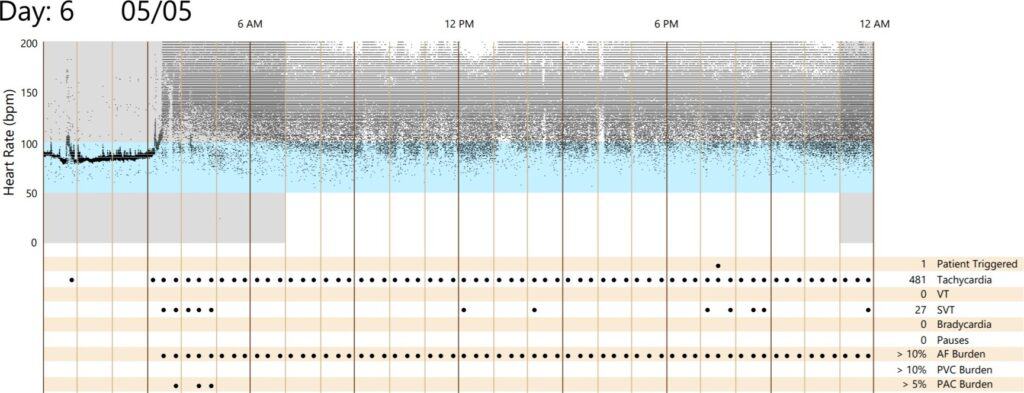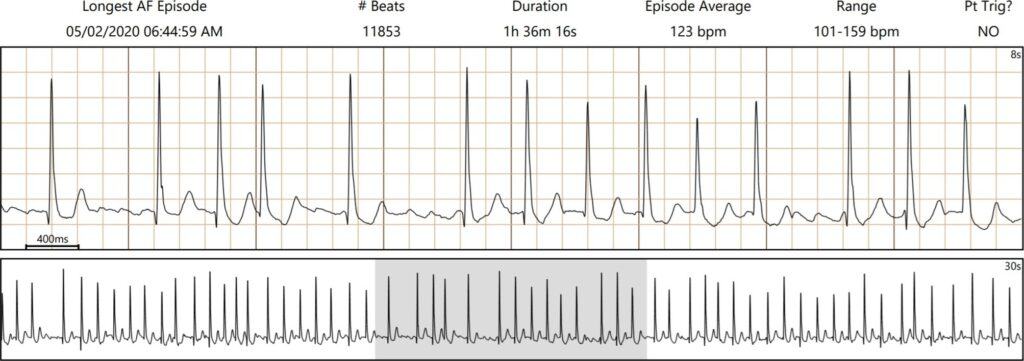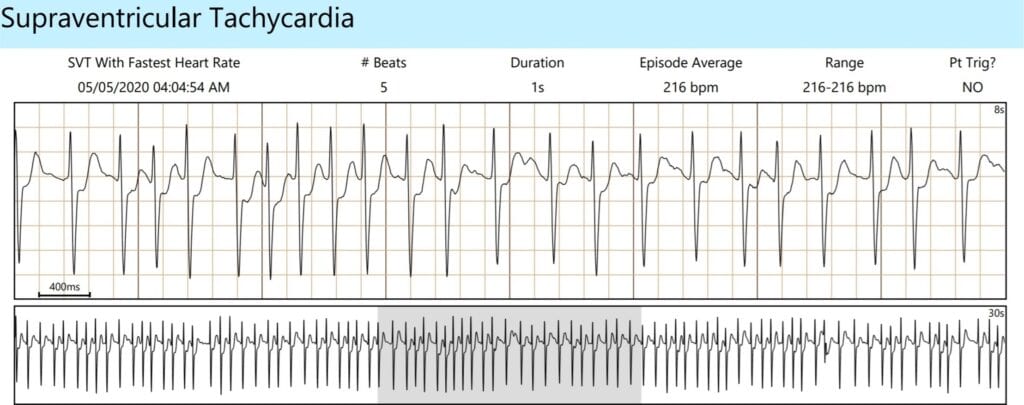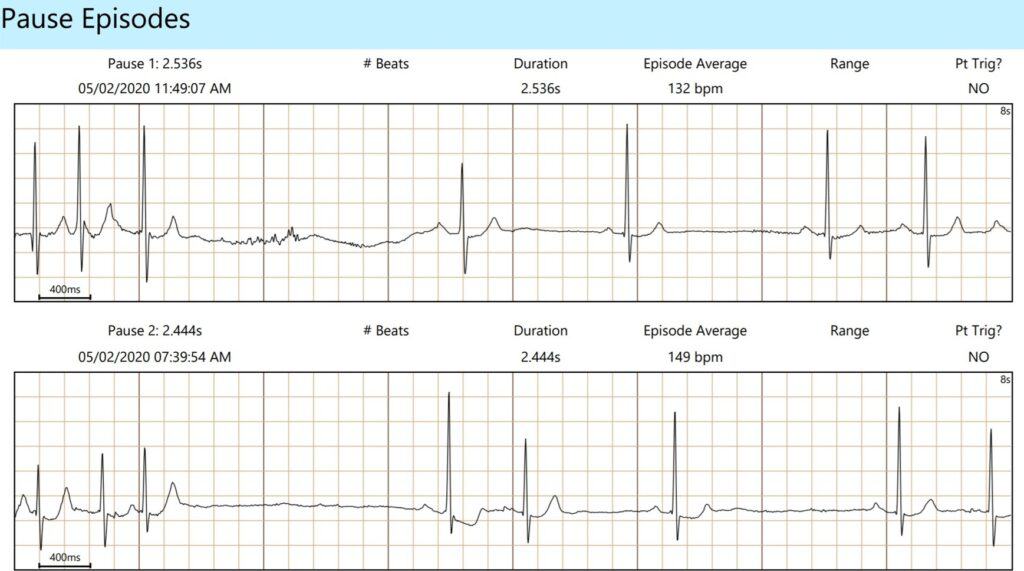Background
A 79-year-old female presented for in-office evaluation by her Primary Care Physician (PCP) with complaints of a recent syncopal episode occurring 10 days prior to her visit. She also reported intermittent episodes of palpitations occurring less frequently than every 48 hours. The patient’s medical history consists of hyperlipidemia, hypertension and a beta blocker for rate control.
Key Takeaways
- PCP-managed new AF diagnosis on monitored day 6
- Streamlined diagnostic timeline using 99% analyzable data
- Maximized reimbursement with global procedural billing code
- No outsourcing or service center required





